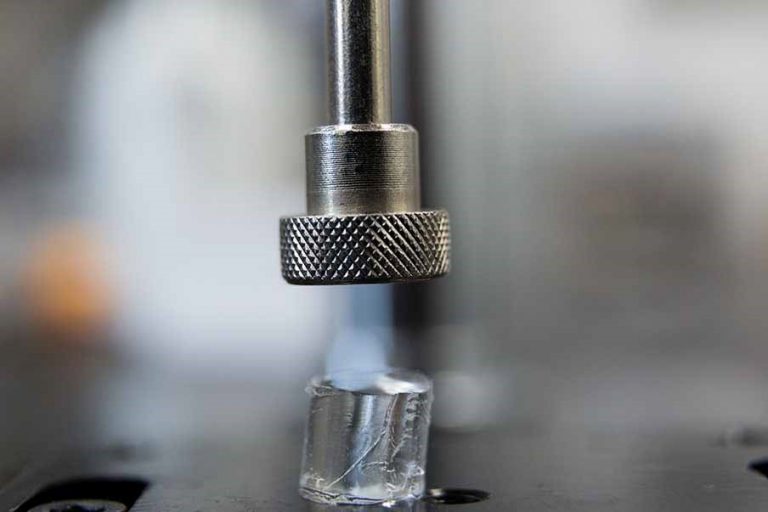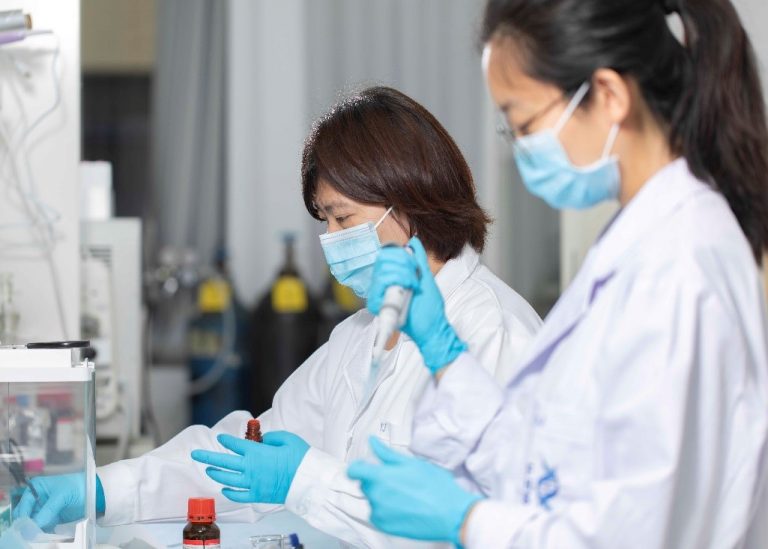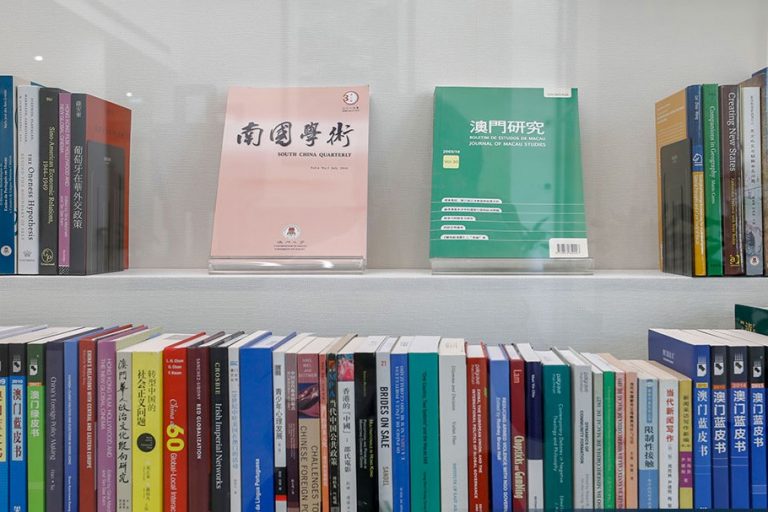UM has been included in the Essential Science Indicators (ESI) database for ranking among the top 1 percent in terms of citation frequency of published papers in 12 research fields, including
UM is among top 1% in 12 fields in Essential Science Indicators (ESI)
The ESI is an important indicator commonly used for evaluating the academic quality and influence of universities and research institutes in the international community. It is also one of the globally-recognized and important references for evaluating an institution’s academic development. The database only ranks fields with papers that have been ranked among the top 1 percent in terms of citation frequency in the last 10 years. This is testament to UM’s important and continuous contributions to the various fields and the university’s international recognition in the academic circle.
Engineering research at UM focuses on academic research and technological innovation. Faculty members in this field have strong research capabilities in electrical and computer engineering, electromechanical engineering and civil and environmental engineering.
Electrical and computer engineering
In addition to being a world-famous casino city, Macao is also known for its microchip research. Faculty members in the Department of Electrical and Computer Engineering and the State Key Laboratory of Analog and Mixed-Signal VLSI have developed cutting-edge chips. The number of papers from UM accepted by the International Solid-State Circuits Conference 2019 ranked the university second in the world in microelectronics research, next only to Intel. In addition, UM has successfully established a world-class chip measurement platform.

UM ranks No 2 globally in the number of published chip research papers.
Electromechanical engineering
Machinery research at UM focuses on four areas, namely thermal fluid and energy engineering, robotics and intelligent systems, advanced materials and smart manufacturing, and smart building equipment engineering. Intelligent robots have a wide range of applications in fields such as intelligent manufacturing and smart city security monitoring. Recently, the robotics and intelligent system team in the Department of Electromechanical Engineering conducted a study titled ‘Force-Sensing Automated Micromanipulation System’. The project has been recommended for the Technological Invention Award (Second Prize) of the 2018 Macao Science and Technology Awards. The team has also conducted projects titled ‘Research and Application of Multi-modal Sensing and Data-driver Intelligent Process Planning Technology for Industrial Robot’ and ‘Development of robotic intelligent operation system based on 3D vision sensing and compliant force control’, which were funded by the Science and Technology Development Fund of the Macao SAR.
Civil and environmental engineering
The key research areas of civil and environmental engineering at UM are structural engineering, geotechnical engineering, construction management, environmental engineering and marine environment and engineering. The Faculty of Science and Technology established the Centre for Regional Oceans in 2019, with the aim of studying cutting-edge academic topics in marine environment and ocean engineering, promoting academic exchange and collaboration in related fields, in order to support the sustainable development of Macao and the Guangdong-Hong Kong-Macao Greater Bay Area. Based on the actual needs of Macao and the Greater Bay Area, the centre actively carries out research studies on the marine multi-circle dynamics and environmental regulation mechanisms, natural disaster prevention and engineering in coastal cities, as well as coastal environmental management and resource development. More than 30 scientific research topics, including key R&D projects for the Ministry of Science and Technology as well as those at provincial and ministerial levels, have been approved and will be carried out by members of the centre.
Materials research is interdisciplinary in nature and requires an excellent grasp of knowledge in chemistry, physics and mathematics. UM has a team of innovative, multidisciplinary scholars in the fields of chemistry, physics, and materials science. They conduct research in quantum mechanics, physical chemistry, inorganic and analytical chemistry, energy storage batteries, nano-photoelectric devices, and polymer functional materials. UM attaches great importance to research related to green energy and strives to provide solutions to energy and environmental challenges. The Institute of Applied Physics and Materials Engineering has achieved outstanding results in the field of chemistry and materials science. Main research outcomes include hybrid active power filters, perovskite solar cells, zinc-air fuel cells, and superabsorbent and superconducting highly-elastic hydrogel. The innovative hydrogel can absorb up to 13,600 times its weight in water, which is more than twice the water-absorption ability of the most water-absorbent hydrogel ever recorded. The institute will also accelerate and promote studies in the following areas: carbon quantum dot cancer immunodiagnosis and treatment, supersurface optical properties, as well as quantum dot luminescent materials and devices. The studies are funded by the National Natural Science Foundation of China and the Science and Technology Development Fund of Macao SAR. So far, the institute has carried out more than 70 research projects and published more than 500 papers in SCI-indexed journals. Its international academic influence is growing steadily.

An innovative super hydrogel developed by IAPME researchers has broken the world record.
The advantages of UM’s computer science research are mainly reflected in internet technology as well as artificial intelligence and big data. Faculty members in this field have published many high-quality papers in internationally-renowned journals and at top conferences.
Macao is one of the major cities in the Guangdong-Hong Kong-Macao Greater Bay Area and the necessity of developing itself into a smart city is self-evident. As the only state key laboratory in its field, the State Key Laboratory of Internet of Things for Smart City at UM focuses on the following five areas: smart sensing and network communication, urban big data and smart technology, smart energy, smart transport, as well as urban public security and disaster prevention. Researchers in the lab have undertaken a number of projects under national research programmes, including the National Basic Research Programme (973 Programme) and the State High-Tech Development Programme (863 Programme). They have also completed some key projects under the National Natural Science Foundation of China. They have won various national awards and hold more than ten patents, with more patents pending. Among the research projects, a project titled ‘Research on Key Technologies and Platforms for Collaborative Intelligence-Driven Autonomous -Driving Vehicles’, has been listed under the Science and Technology Development Fund’s Macao Funding Scheme for Key R&D Projects, becoming one of the largest research projects in Macao’s history. Macao’s first platform for testing autonomous buses with passengers will be launched on UM’s campus. It is expected to become a first-class platform in the Greater Bay Area for testing group intelligence-based autonomous driving and vehicle-road cooperative autonomous driving.
UM attaches great importance to the development of artificial intelligence and has achieved outstanding results, particularly in such areas as pattern and image recognition, classification, as well as object tracking and recognition. In addition, UM also focuses on artificial intelligence theory and algorithms, machine translation, smart tourism and gambling, and smart medical care. Key data science projects include data processing and application of biomedical big data, educational big data, business and media big data, multilingual big data, legal big data, urban big data, and data governance. The Centre for Data Science of UM also provides assistance in the development of featured financial services in Macao through data analysis and research.

In computer science, UM is particularly strong in internet technology, artificial intelligence, and big data.
The Institute of Chinese Medical Sciences (ICMS) has launched courses and research studies related to drug targeting and screening, pharmacology and safety evaluation, as well as pharmacokinetics and metabolomics in drug development. UM has gathered talent from around the world to establish a world-leading innovation research platform for traditional Chinese medicine. The platform focuses on multidisciplinary research, integrating cutting-edge emerging technologies, and carrying out innovations in the fields of drug mechanism, toxicology, delivery, and metabolism.
The number and global impact of research articles published each year by UM scholars in pharmacology and toxicology have been increasing steadily. The university attaches great importance to improving research quality and the commercialisation and application of research results in these fields. As of March 24, 2020, UM scholars have published 763 articles in SCI-indexed journals on pharmacology and toxicology, one of the nine subjects that rank UM among the top 1 per cent in ESI. These articles have been cited 11,563 times.

UM has developed a world-leading platform for innovations in Chinese medical sciences.
Clinical medicine research is mainly conducted by two academic units at UM, namely the ICMS (including the State Key Laboratory of Quality Research in Chinese Medicine) and the Faculty of Health Sciences (FHS). The ICMS has established a top platform for the innovation of Chinese medicine, and has published 1,878 articles in SCI-indexed journals (with an average impact factor of 4.2, of which 413 have an impact factor >5).
Since its establishment in 2013, the FHS has made great progress in clinical medicine-related research, especially in precision medicine for cancer treatment, stem cells and development, ageing, neurological and metabolic disorders, drug development, data science, bioimaging, and nanomedicine. The FHS has published more than 1,000 papers in SCI-indexed journals. Among them, more than 300 articles have been published in journals with an impact factor equal to or greater than 5, and more than 70 articles have been published in journals with an impact factor equal to or greater than 10.

UM has made important contributions in the field of clinical medicine.
The psychiatry/psychology research direction is mainly pursued at UM by the FHS and the Department of Psychology. In the Times Higher Education (THE) World University Rankings 2020, UM has been ranked 97th in the world and eighth in Asia in the discipline of psychology, making psychology the highest-ranked subject at UM. The papers published by faculty members and researchers in the Department of Psychology are ranked among the top in Asia every year in terms of both quality and quantity.
In addition, professors in the Department of Psychology serve as editorial board members in as many as 15 influential research journals (with an average impact factor of around 3). These journals include Journal of Child Psychology and Psychiatry, Health Psychology and Behavioral Medicine, and Personality and Social Psychology Bulletin). Since 2014, the FHS has published more than 230 ESI-listed papers, in the fields of psychiatry-related clinical research, epidemiology, and evidence-based medicine research, in SCI-indexed journals, including Lancet, World Psychiatry, JAMA Psychiatry, Lancet Psychiatry, and American Journal of Psychiatry.

Department of Psychology ranked 8th in Asia and 97th in the World by THE World University Rankings 2020.
The quality and quantity of papers published by UM scholars in the field of social sciences continued to increase in recent years. Topics covered in these papers include policy research and original studies in the field. Studies at UM in the fields of psychology, economics, international relations, communication, and criminology have attracted international attention.
According to the Times Higher Education (THE) World University Rankings 2020 by subject, UM ranks 101-125 in the education field, and the number of UM papers published in SSCI-indexed journals in the past five years has increased by 102 per cent. Listed among the top 1 per cent in the ESI, many of these papers have been published by international journals in social sciences, including Structural Equation Modeling-A Multidisciplinary Journal, Educational Research Review, and Language Teaching.
According to the THE World University Rankings 2020 by subject, UM is ranked 301-400 in social sciences. English-language journals edited by faculty members in the Faculty of Social Sciences include China Information, Journal of Contemporary Asia, Asian Journal of Criminology, Discourse, Context & Media, and Journal of International and Intercultural Communication.

